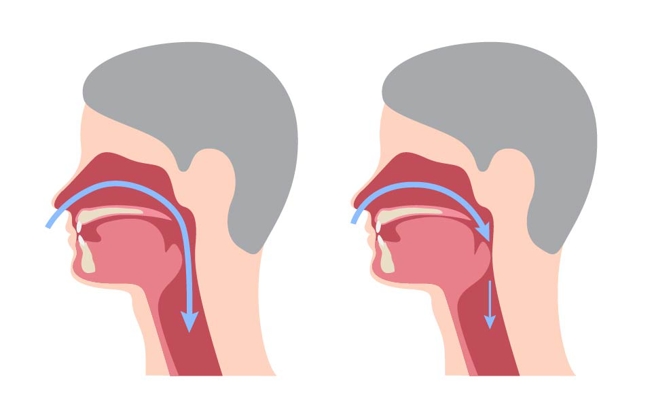What Are The Risk Factors Linked to Cancer?
- Category: Cancer, Oncology, Parrish Cancer Center
- Posted On:
- Written By: Parrish Medical Center

You can’t prevent cancer 100%, but you can still make personal choices to help reduce your risk. Living a healthy lifestyle — i.e. not smoking, staying active, maintaining a healthy weight, etc. — and staying on top of wellness exams are some basic ways to take charge of your health.
Staying educated about the lifestyle and genetic risk factors is a vital component in being proactive with your health. When armed with information, you can make the right changes or know when to seek the proper guidance from a medical professional. When it comes to your health, the best offense is a good defense.
Lifestyle and Habits
Your lifestyle and the personal health choices you make can have an impact on your risk of developing cancer. Here are some of the most common lifestyle habits that can elevate your risk:
- Smoking
Tobacco contains a host of chemicals and carcinogens which can cause lung cancer. Even if tobacco isn’t inhaled through cigarettes, other tobacco products are just as harmful such as chewing tobacco and cigars. - Alcohol Consumption
According to the CDC, when you consume alcohol, your body breaks it down into a chemical called acetaldehyde. Not only does acetaldehyde damage your DNA, but it also prevents your body from repairing the damage. When DNA is damaged, a cell can begin to grow and create a cancer tumor. - Sedentary Habits
Physical inactivity can also lead to weight gain and obesity (also a cancer risk factor). By taking an audit of how many sedentary activities you participate in throughout the day, you can re-evaluate your lifestyle and make changes. Some things to consider:- How many hours you sit and watch TV each day
- How long you sit at your work desk
- How many hours you commute by car or bus each day
- Overweight/Obesity
Being overweight or obese are both risk factors in developing cancer. Some reasons why obesity could be linked to cancer are:- Increased levels of insulin — increased levels of insulin may assist certain types of cancers to develop such as colorectal cancer, stomach cancer, prostate cancer and cancers of the female reproductive system.
- Higher estrogen levels — higher amounts of estrogen produce fat tissue which can promote the development of breast and endometrial cancers.
- Diet/Eating Habits
Eating a poor diet along with lack of exercise is another risk factor. Consuming red meat or processed meat and other processed foods can increase your risk of cancer. High-calorie foods and salt-preserved foods can also increase your risk of developing certain types of cancer. - Unprotected Sex
Having a high number of sexual partners can increase your chance of coming into contact with the HPV virus. The HPV virus can be a cause of the following cancers:- Cervical cancer
- Penile cancer
- Oral cancer
- Sun Exposure
There is no such thing as a healthy tan. Sun exposure and tanning cause damage to the skin when its subjected to ultraviolet light. This damage causes changes to the skin by breaking it down thus leaving your skin susceptible to skin lesions which could lead to skin cancer.
Genetics and Family History
Inherited Gene Mutations vs. Acquired Gene Mutations
Your genes determine things such as your hair color, eye color, and height. In some cases, abnormal genes can be passed on from parents, thus affecting your chance of getting cancer and other diseases. An abnormal change in a gene is called a mutation, and gene mutations can be either “inherited” or “acquired.” The American Cancer Society defines them as the following:
- An inherited gene mutation is present in the egg or sperm cell that formed the child. When the egg is fertilized by the sperm, it creates one cell that then divides many times and eventually becomes a baby. Since all the cells come from this first cell, this kind of mutation is in every cell (including eggs or sperm) and so can be passed on to the next generation.
- An acquired (somatic) mutation does not come from a parent but is acquired sometime later. It starts in one cell and then is passed on to any new cells that are created from that cell. This kind of mutation is not present in egg or sperm cells, so it is not passed on to the next generation. Acquired mutations are much more common than inherited mutations. Most cancers are caused by acquired mutations.
People who have a family history of cancer may want to inquire with their doctor about genetic counseling and testing. This could be beneficial in keeping proactive in your future health care. For example, if you have a family history of breast or ovarian cancer, there could be an inherited gene mutation in either the BRCA1 or BRCA2 genes.
How You Can Make Changes
While you can’t change your genetics or your family history, you can work with your doctor to identify conditions that are in your control. Communicate any new symptoms you may be experiencing and go for regular checkups as early detection is critical to increasing the chances of survival. Here are some other things you can do to help reduce your cancer risk factors:
- Quit smoking
- Reduce alcohol consumption
- Limit or remove processed meats from your diet
- Incorporate more fruits and vegetables into your diet
- Limit sugary and high caloric foods
- Remain active and exercise regularly
- Get regular checkups for early detection
- Mammograms
- Pap tests
- Routine prostate exams
- Limit sun exposure and avoid tanning beds. Wear sunscreen to protect your skin
- Immunizations — Some immunizations can help prevent certain cancers. Consult your doctor to determine if you are a candidate for the following vaccines:
- Hepatitis B vaccine - can reduce your risk of developing liver cancer
- HPV vaccine - can reduce your risk of cervical cancer
From cancer education to screening and treatments, Parrish Medical Center is here to help. We offer the latest treatments, advances, and services in cancer care as well as a network of support. Our Cancer Care Navigator Program will focus on the logistics of the healthcare system so you can focus on your health. To learn more about cancer prevention and your risk factors, contact Parrish Medical Center at (321)268-6111.



